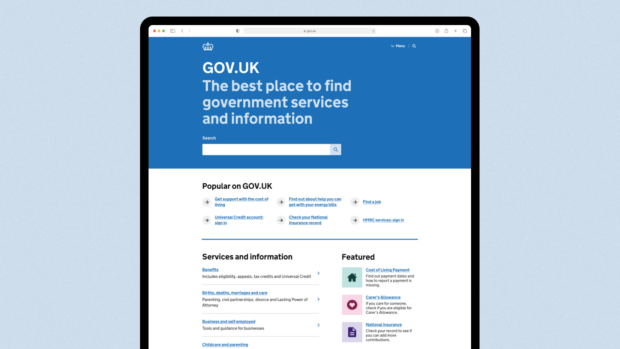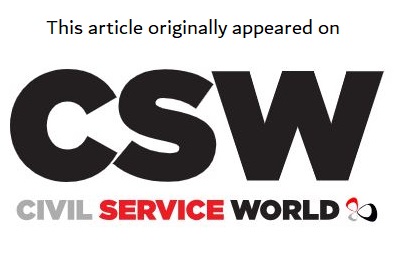Parliament’s Culture, Media and Sport Committee has claimed that GDS needs to make some overdue improvements to Whitehall’s website, as part of a wider work to improve how government communicates
GOV.UK is not meeting the needs of users and should be improved, according to a new report by MPs.
Government’s website has grown to contain more than 500,000 pages, with an average of 17.8 million users a week, since it was launched in 2012. But a report released today by parliament’s Culture, Media and Sport Committee warns the website continues to “overwhelm” some users.
“The Government Digital Service has acknowledged that some users of GOV.UK have been lost and overwhelmed by the architecture of the website and the amount of information that it contains,” the report states. “While it has committed itself to making improvements, three years later the site is still not meeting user needs.”
GDS needs to undertake further work better to understand user needs for accessing information on GOV.UK, according to the report. The committee’s report, titled Trusted voices, outlines a series of areas where improvements are needed in the way the government communicates.
It argues that government scientists need greater freedom to speak to the media to combat the spread of misinformation.
“Some of the country’s best scientists work in government departments and agencies. It is a wasted opportunity not to allow them to play a larger public role,” it says.
The report describes how the chief medical officer and chief scientific officer “played a critical role in public communications during the pandemic and proved the value of scientific experts engaging in issues of national concern and demonstrated their ability to navigate the boundaries of what government scientists can and cannot comment upon”.
It adds: “The government should allow and encourage its scientists to respond directly to the media to counter misinformation.”
The MPs also call for evidence used in policymaking, especially in areas frequently subjected to misinformation, to be published more often.
“While we recognise the need for free and frank discussions within government, and the political, security and commercial sensitivities of some government business, increased transparency for the evidence underpinning policy decisions has the potential to increase the level of trust in government,” the report says.
Related content
- GOV.UK homepage redesigned to be ‘bolder and clearer on mobile devices’
- GOV.UK Chat – government tests AI from ChatGPT firm to answer online users’ questions
- Online service launched to apply for GOV.UK exemptions
The report cites research by Ipsos indicating that one in ten members of the public trust ministers to tell the truth, while civil servants are trusted by 51%, “well below professors (76%), scientists (74%), and even football referees (60%)”.
It states: “Nonetheless, there is a critical role for the government in being a trusted voice, to tackle the spread of disinformation, and to help the public to access and discern authoritative information for themselves.”
The report also calls for the government to have a “clear strategy” for communicating with young people, asking it to publish guidance for departments and public bodies on communication through new apps and platforms such as TikTok.
In March, the government banned TikTok on government electronic devices, following a security review of government data and how some platforms accessed and used sensitive information. However, the report says TikTok is still used by some departments as a means of communication, with the Ministry of Defence and defence secretary Grant Shapps both operating an account.
The committee has also called for more openness around the government’s controversial Counter Disinformation Unit (CDU) – which was recently rebranded as the National Security Online Information Team (NSOIT)
“We are concerned about the lack of transparency and accountability of the CDU and the appropriateness of its reach.”
The report recommends “an independent review of the activities and strategy” of the NSOIT, which has been described by Big Brother Watch as “one of the most opaque units in government outside of the security services”.
‘Accurate and authoritative’
Failings in government comms during the Covid-19 pandemic is another area addressed by the committee in its report, with concerns raised about whether lessons have been learned.
The report says were “gaps and inconsistencies” in the information provided to the public during the pandemic, with “limitations” in information and “the methods by which it was communicated”.
It adds: “We welcome the fact that the government says it has learned lessons and is using these to inform its subsequent communication campaigns. We are however concerned that there is no evidence that the government has conducted a full evaluation of its communications or formally sought feedback from its intended audiences following the pandemic.”
It calls on the Government Communication Service to assess the effectiveness of government comms during the pandemic and publish its findings by the end of this year.
Committee chair Dame Caroline Dinenage commented: “With the spread of misinformation on social media remaining a very real problem, it’s more important than ever that communities across the country have access to accurate and authoritative information that is communicated in an open and relatable way.”
Responding to the issues raised in the report, a government spokesperson said: “We use a range of channels to reach people directly on the platforms they spend the most time on. This includes through marketing on digital and social media platforms, including those which attract younger audiences.”
They added that the Online Safety Act will “help tackle the root cause of disinformation by requiring social media platforms to swiftly remove illegal misinformation and disinformation as soon as they become aware of it”.





